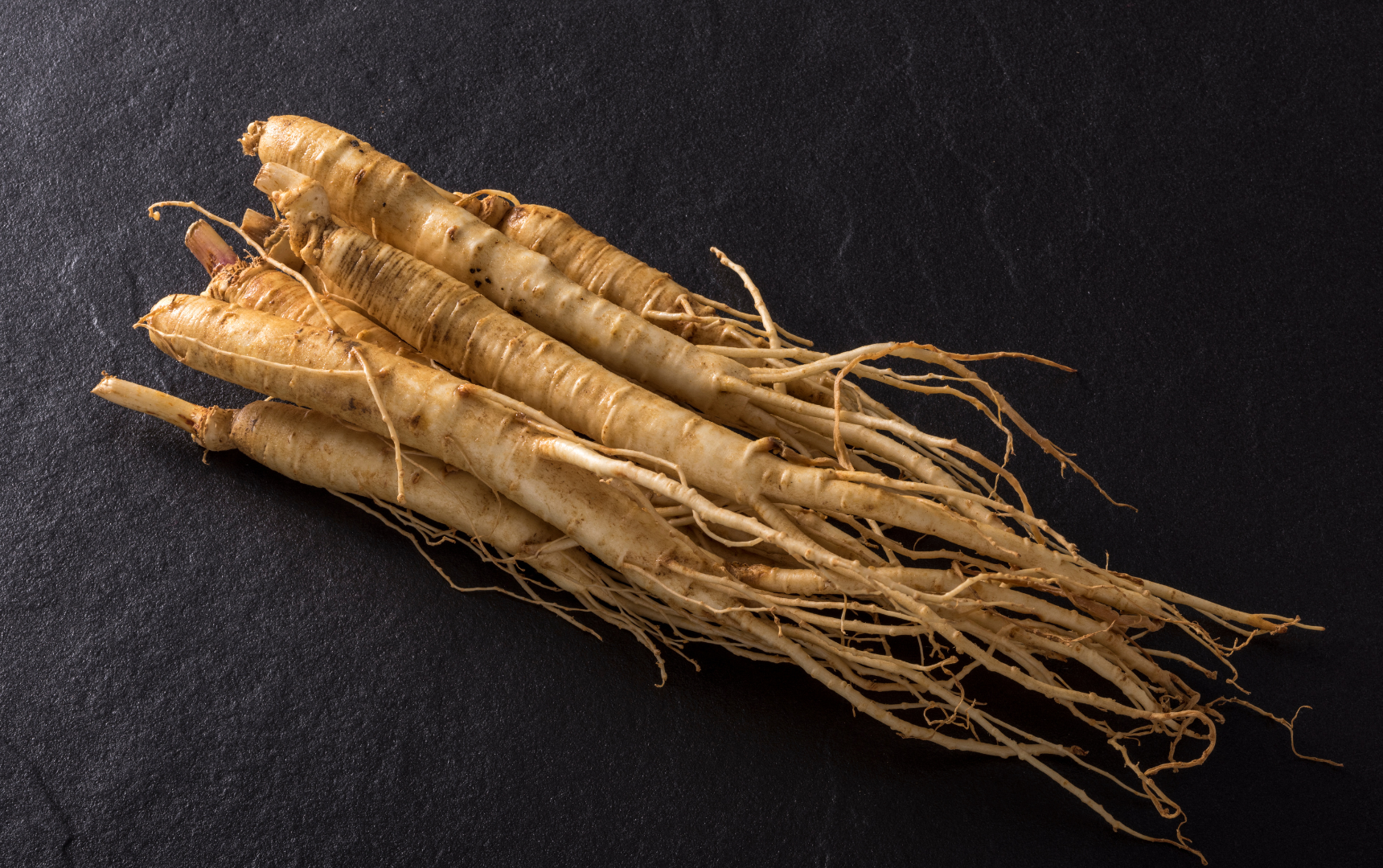
At some point, we all stare blankly into that cup of coffee and wonder, “Is this the best way to get the energy I need?” If you’ve reached your energy crisis point, you aren’t alone. Many people find themselves let down by caffeine instead of pepped up.
Thankfully, there are solutions you can use to give yourself an energy boost sans caffeinated beverages. Read on to learn how energy is created and how these five natural energy boosters can help support your energy levels in the long term.
How Do Natural Energy Boosters Work?
To understand how to boost low energy levels and banish feelings of fatigue, we first need to understand how energy works and how it is created in the body. Energy starts in our cells, and, in turn, our cells require nutrients from the foods we eat to create energy.
The Science Behind Sustained Energy
When you eat, your body breaks down your food into usable packets. Carbohydrates are broken down into glucose, the body’s preferred source of energy. Glucose is transported via insulin from the bloodstream to the cells.
Once the cells receive the glucose, they metabolize it through glycolysis, the citric acid cycle, and phosphorylation to produce adenosine triphosphate, or ATP. ATP is the energy currency for the cells, and it helps power various cellular functions. These functions support tissues that, in turn, support organ function and entire bodily systems and processes.
Thus, without adequate energy in the cells, we don’t have adequate energy in our bodies.
From Plate to Power: The Role of Nutrient Absorption
You can also support sustained energy by encouraging nutrient absorption. The majority of nutrient absorption happens in the small intestine, a vital part of the gut.
Supporting your gut health by including prebiotic fiber and probiotics can help ensure the nutrients in your foods make it into your bloodstream and sustain your energy levels throughout the day.
The big takeaway on energy creation: It hinges on our dietary intake of energy-supportive foods and complementary herbs, as well as our gut health.
5 Natural Energy Boosters To Add Zest to Your Day
Yes, there’s more you can do to support your energy levels than drinking (yet another) cup of joe. No offense to Joe, but for sustainable energy, we can do better.

1. Morning Matcha Magic
It’s green, frothy, and hitting cups, mugs, smoothies, and protein shakes everywhere you go. Matcha is a concentrated form of green tea that uses young, tender leaves grown in the shade to produce an antioxidant-rich powder that is both a superfood and a functional food, offering a natural way to support “calm alertness.”
Matcha contains two important compounds: L-theanine and caffeine (but less caffeine than a cup of coffee). L-theanine helps reduce stress, calm nerves and support brain function. When combined with caffeine, a natural stimulant, the results are described as calm focus, or wakeful relaxation.

2. The Ginseng Jolt
Athletes have relied on ginseng for years, and before them, ancient cultures trusted ginseng to encourage stamina and endurance. Now, we have even more than just thousands of years of anecdotal evidence that ginseng works.
In studies, Korean red ginseng was shown to improve endurance associated with physical activity. By modulating blood lactic acid levels and creatine phosphokinase, this herb helps support your ability to get in more reps or run a little farther.

3. Mighty Maca
Maca is native to Peru and is actually a cousin of broccoli and cabbage. Unlike its cousins, we aren’t interested in maca’s leaves or flowers — instead, we grind the roots down to a powder and use that for herbal remedies.
Maca has been trusted by the Andean Indians in Peru to support sustained energy, and now there’s plenty of scientific research to back that claim. Maca helps improve both energy and mood.
This might be due to the concentration of GABA, a neurotransmitter that boosts mood, contained in maca root. Maca consumption can also help with athletic endurance and even has adaptogenic properties, making it a great choice for fighting stress and balancing the nervous system.

4. Magnificent Mushrooms
Many of the natural energy-enhancing ingredients we know of were originally used to support sexual health. This is also true of cordyceps mushrooms. These fungi’s ability to sustain energy was discovered through their use for sexual health and stamina.
Cordyceps are thought to increase blood flow, which can help support the delivery of oxygen and nutrients to the cells and help encourage energy levels.

5. Decadent Dark Chocolate
Everyone collectively cheer because, in addition to being absolutely delicious and packed with antioxidants, dark chocolate can also help support your energy levels! Dark chocolate contains magnesium, which is required for energy production by the body, and healthy fat, which the body also converts to energy (particularly for long-duration, low- to moderate-intensity exercise where the body has used up available glycogen).
Dark chocolate might also help improve resting energy expenditure. In one study of individuals already exercising, resting energy expenditure levels were elevated with the supplementation of 70 percent dark chocolate. That’s enough to encourage everyone to add a little dark chocolate to their day. Luckily, you can do it the JOYÀ way with one of our adaptogenic chocolate bars.
What Lifestyle Changes Can Help Support Energy?
Energy is complex. While simply eating energy-increasing ingredients can help bolster your energy stores, there are also a few lifestyle hacks that can help support your energy levels.
Maximize Your Macros
If you’re routinely skipping an entire macro group, your energy is going to take a hit. It is essential for your body’s proper function to get a sufficient amount of complex carbs, healthy fats, and lean proteins (what that amount is will depend on several factors, including your activity level).
A healthy diet focused on energy support and wellness should avoid overly processed foods, as these simple carbohydrates can promote unhealthy blood sugar levels.

Getting Regular Exercise
It may seem counterintuitive, but expending energy helps create more energy because it signals your body that you need more. Aim for at least 150 minutes of heart-pumping cardiovascular exercise per week and two to three strength or resistance training sessions to help support muscle growth and healthy bones.
Minimize Stress
Chronic stress can lead to chronic fatigue. Combat this cycle with better stress management skills and supportive supplements.
Learning to manage your stress is a skill that takes practice. Meditation, mindfulness, breathwork, and yoga can all help you lower stress levels and feel better, and adaptogenic herbs can also help. Adaptogens help the body resist the effects of stress, bringing it back into balance and promoting proper functioning so you can feel more energized.
Prioritize Sleep
Add it to your to-do list. During sleep, both the body and brain recover and regenerate. Most adults need between seven to nine hours of good, quality sleep every night. If you consistently wake up with tiredness, you probably aren’t getting enough.
Practicing better sleep hygiene can help. Sleep hygiene refers to the methods you use to fall asleep, the conditions you sleep in, and the consistency of your sleep schedule.

Drink Enough Water
One of the most common signs of dehydration is fatigue. Making sure you drink enough water can be hard unless you’re intentional about it. To give yourself a leg up, make an effort to drink one glass of water for every non-water beverage you consume, especially when drinking alcohol or a caffeinated beverage.
Natural Energy Boosters vs. Energy Drinks: What’s the Difference?
We know. It’s tempting to reach for that brightly decorated aluminum can filled with caffeine, taurine, and other *interesting* ingredients to get a quick boost of energy. But for sustaining energy that lasts, energy drinks aren’t a good solution.
Natural energy boosters work synergistically with your body to help support the creation and maintenance of energy levels. On the other hand, energy drinks provide a stimulant that gives you a quick boost, but it usually comes along with jitters and an ensuing crash later in the day.
Not to mention, the ingredients in energy drinks can be questionable at best and toxic at worst. For clean energy production, we recommend sticking to natural sources.
The Bottom Line
When your energy levels need a pick-me-up, grabbing a coffee might not be the best. Instead, focus on maintaining a healthy lifestyle by eating a balanced diet, protecting your mental health, getting enough sleep, staying hydrated, and adding a few natural energy boosters into your daily lineup.
An easy way to add in some of these energy boosters? Through JOYÀ’s superfoods. With pure ingredients that are both delicious and research-backed, there’s no better way to support your overall health and wellness.
